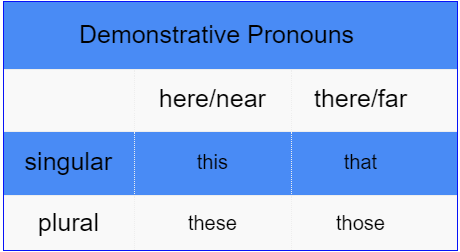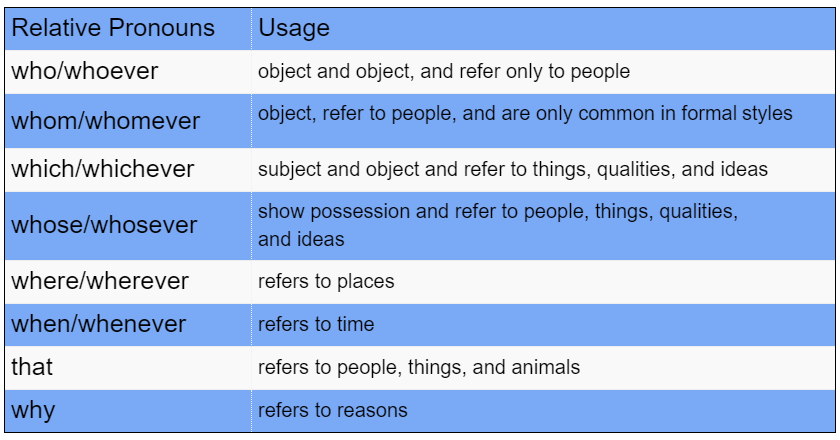Demonstrative pronouns are used to point something out and replace nouns or noun phrases. This is a book. That is a table. These are my books. Those are my shoes. Demonstrative Pronouns here/near there/far singular this that plural these those We use ‘this’ and ‘these’ to introduce people. …
Read More »Relative pronouns
Relative pronouns are used in complex sentences and refer to nouns in the main clauses. We use them to introduce subordinate clauses or noun clauses. Relative Pronouns Usage who/whoever subject and object and refer only to people. whom/whomever object, refer to people, and are only common in formal styles. which/whichever …
Read More »Intensive pronouns
Intensive pronouns are words that we use to emphasize the subject in a sentence. Did you yourself make this coffee? I myself must solve the problem. We will go there ourselves. You yourselves can do this. singular Subject pronouns Intensive pronouns I myself you yourself he himself she herself it …
Read More »Reflexive pronouns
Reflexive pronouns are words that we use when the subject and the object of a sentence are the same. Did you hurt yourself? I can look after myself. We made ourselves some coffee. singular Subject pronouns Reflexive pronouns I myself you yourself he himself she herself it itself plural …
Read More »Possessive pronouns
Possessive pronouns are words which we use them instead of nouns and show ownership or relation. That pen is mine. This book is yours. That car is theirs. Singular Personal pronoun Possessive adjectives Possessive pronouns I my mine You your yours He his his She her hers It its …
Read More »
